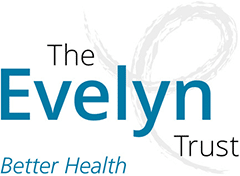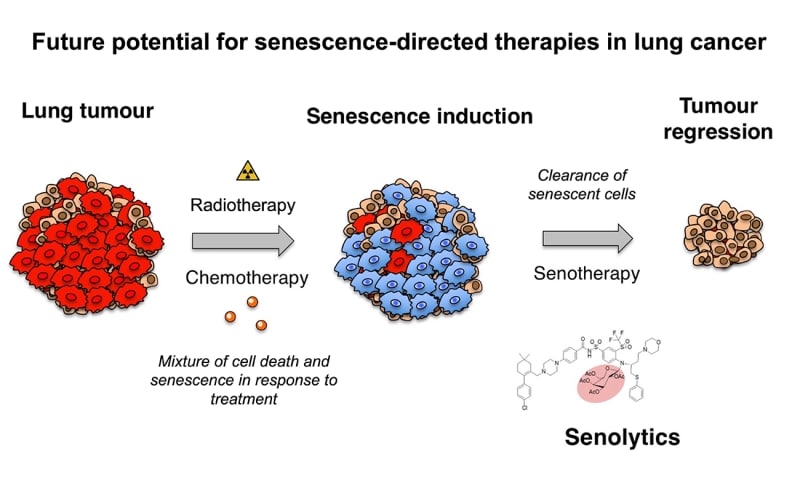Dr Denholm’s research project aimed to improve lung cancer treatment outcomes, by focusing on understanding “cellular senescence,” a state where some cancer cells become dormant during treatment but can promote cancer growth by secreting substances. Her research then aimed to develop better treatments that specifically target these cells.
Using blood and cheek cell samples, Dr Denholm identified and tracked these “zombie cells”, as they are often known, in lung cancer patients at various treatment stages, and found biomarkers that identified them. Potential treatments called senotherapies were then tested in the samples.
The research also focused on understanding why some lung cancer patients respond differently to treatment and how treatment-induced cellular senescence plays a role in this process. This information will help create better models for testing new drugs that target senescent cells and design clinical trials to improve patient outcomes.
Building on previous work within the research group, the experiments carried out during Dr Denholm’s Fellowship year identified that senescent lung cancer cells secrete a complex cocktail of protein factors in response to several different chemotherapy drugs used clinically to treat lung cancer and in response to radiation. Many of these proteins are known to promote tumour growth and relapse. While this was already a known phenomenon in response to anti-cancer treatment, this work has specifically examined it with treatments actively being used in the clinic and specifically being used in the treatment of patients participating in clinical trials linked to the project. This use of clinically relevant treatments and experimental models has not always been the case in previous research in this area, but is crucial to making links to the clinic wherever possible.
These findings were first confirmed using cell-based experiments in the laboratory, but importantly a number of the proteins can be identified in samples from other pre-clinical model systems and in preliminary test blood samples from patients with lung cancer.
In facilitating valuable protected research time, the Fellowship year funded by The Evelyn Trust provided Dr Denholm with time to work with colleagues across the Cancer Research UK Cambridge Centre to design and set up two clinical trials collecting blood samples from patients with lung cancer at Addenbrooke’s Hospital, with 45 patients having enrolled and generously provided samples across the two studies to date. These samples will be crucial in determining whether what has been observed in the initial laboratory experiments translates to the human setting, and not only support the work on senescence but also other methods of monitoring for disease response after treatment (including new technologies for measuring circulating tumour DNA).
The next steps include working in more detail with human tissue and blood samples to try and better understand the specific mechanisms underpinning the relationship between senescence and disease progression and relapse in patients with lung cancer.
This innovative research formed the basis for a successful application for a Cancer Research UK PhD Studentship.
Dr Denholm said: “As a Specialist Registrar in clinical oncology, I had a solid foundation in both the theoretical knowledge of cancer biology and cancer therapeutics, but to achieve my goal of a career as a translational cancer researcher, the natural and essential next step in my research career is to spend time in a basic science environment, specifically working towards a higher postgraduate degree.
“Obtaining my Fellowship from The Evelyn Trust has been key in helping me work towards this goal and build on my passion to improve outcomes for patients with lung cancer. Without the year’s funding from the Trust to focus solely on research this wouldn’t have been possible.”
Rebecca Wood, Charity Director,, said: “This research is essential for advancing lung cancer treatment and may have broader benefits in the fight against cancer. We are so proud to have funded this research and we wish Dr Denholm the best of luck on her PhD project.”
About Dr Denholm

Dr Denholm holds a BA in Medical Sciences and BMBCh degrees. She is a member of the Royal College of Radiologists and has completed postgraduate training in Clinical Oncology. She has also received academic prizes and has published research in medical journals. Her research project focusses on understanding cellular senescence in non-small cell lung cancer and its potential implications for improving cancer treatment outcomes.

